
Category: Denunciations


The Federation of Waste Pickers of Argentina mobilizes to defend inclusive recycling
On August 27, the waste pickers marched to the Ministry of the Environment and Public Space, protesting the city’s failure to implement the recycling service agreement. We are profoundly worried that if this continues, the Ministry of the Environment and Public Space will put at risk the health of the city, will increase the waste being buried at landfills…
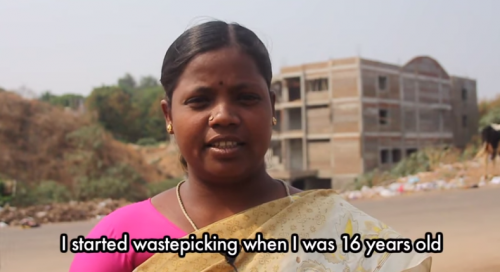
Ambika, a proud waste manager
Recently there was an article/video asking for a ban on waste picking and attacking the organization that is working to organize this section of eco warriors (they retrieve valuables like nobody can), they say waste picking should NOT be formalized. Listen to this lady whose livelihood depends on the waste the city throws.
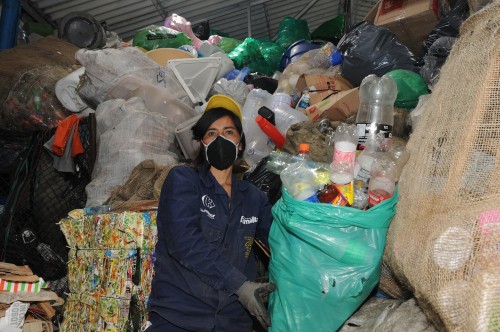
Petition! Support informal recyclers and zero waste in Bogota
We invite concerned groups and individuals across the globe to support a petition by Bogota’s informal recyclers (waste pickers) urging Colombia’s Inspector-General, Alejandro Ordóñez, to reverse the decision to oust the democratically-elected Mayor of Bogotá, Gustavo Petro. The ruling against Mayor Petro was based on actions he took against private waste management companies in the process of implementing an inclusive Zero Waste Program in Bogota.
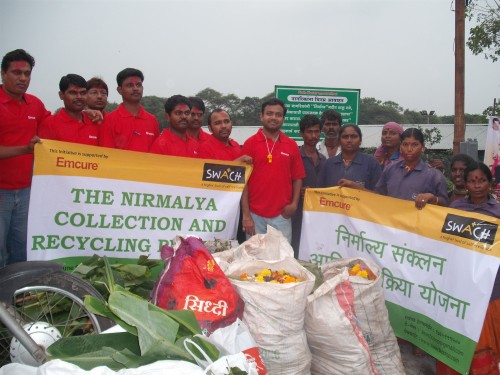
SWaCH: Waste pickers divert 97 tons of festival offerings from the city’s rivers
125 wastepickers, with the support of 400 volunteers diverted over 97 tonnes of nirmalya — offerings from this Ganapati festival — from the city’s rivers!!
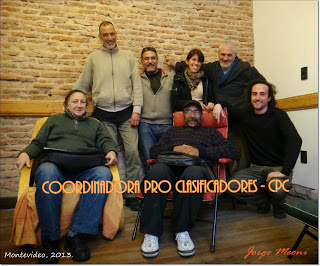
Civil society groups say the Montevideo waste law disregards waste pickers
The Montevideo “Waste Law”, initiated by the municipality in 2004 requires companies that produce waste to develop a waste management plan. The city, now focusing on the recycling aspects of this law, wants the waste pickers to formalize into businesses. The law requires that the organizations that win the public bid contract waste pickers and manage their operations, controlling their work hours and and the neighborhoods in which they collect.
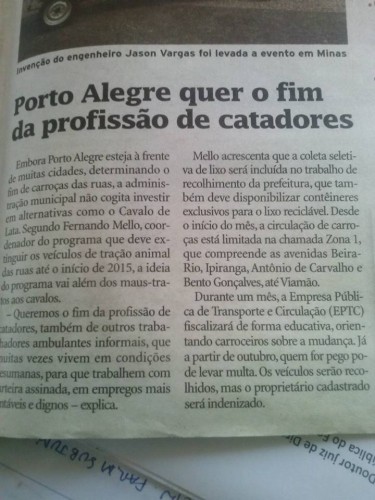
MNCR: The Porto Alegre (Brazil) government doesn’t like waste pickers
The National Movement of Brazilian Waste Pickers – MNCR/RS, strongly denounces statements made by Fernando Mello, the coordinator of the program that will ban the use of horse-drawn carts by the beginning of 2015. “We want to end informal recycling, as well as other informal livelihoods, that many times operate in inhuman conditions, so that they can work formally and in more lucrative and dignified jobs.”
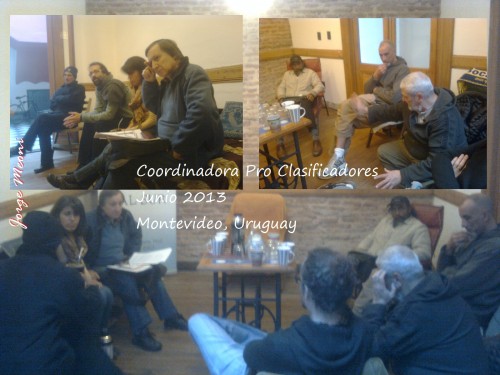
Circulating with horse-drawn carts in Montevideo
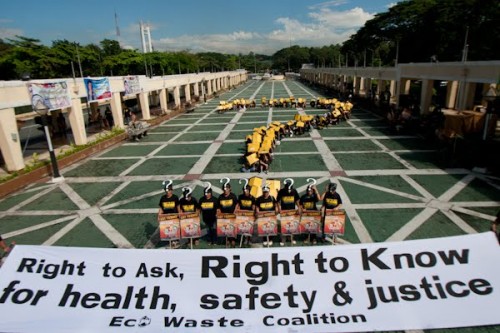
Waste pickers unite for rights, bewail government corruption
In the face of the pork barrel scam that has recently shaken the country, Luzon-based waste pickers unite today to bewail corruption as a dagger driven right into their hearts, trampling on their rights for social recognition and legal protection as unsung heroes of the environment.
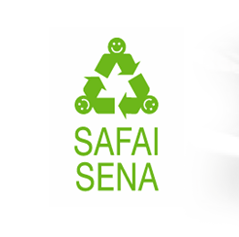
SAFAI SENA: If they pick waste, they must be thieves — the daily struggles of a waste picker in Delhi
Manwara, a waste picker, has been in Delhi since her childhood. She chose this work to add to her husband’s income who is also a waste picker. Recently, Manwara’s dream turned ugly when her innocent children were blamed for a theft that happened in the nearby area. She was unaware that her being waste picker would make her so vulnerable to being accused, harassed, and suffers violence openly.
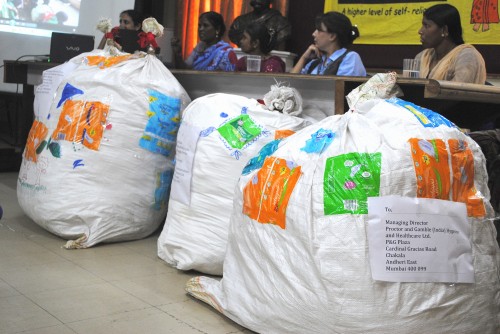
SWaCH: Letter to sanitary napkin manufacturers
Currently wastepickers have to deal with this waste as part of household waste that they collect and also when they are picking from containers, dumps and landfills. In the recent years the amounts of this waste is also rising rapidly. As you can imagine handling this waste with their bare hands is particularly degrading and can impact the health of women who can have a compromised immune system from malnutrition and hardships.

Safai Sena fights for justice for a waste picker and child beaten and tortured by police
On July 26, Safai Sena sent letters to New Delhi’s Minister of Health and Family Welfare in the Women and Child Department and the Delhi Commission for Women detailing what happened to the Safai Sena waste picker and her son on July 19 and calling for a number of actions and reforms. (the letters were written by Jai Prakash Choudhary, Safai Sena secretary)
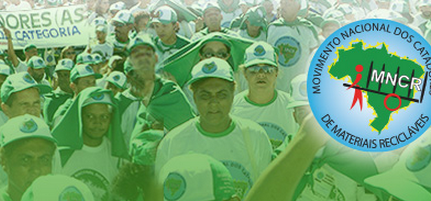
MNCR: Petition In support of a bill against incineration in the state of Minas Gerais (Brazil)
This petition — a joint effort of the MNCR (National waste pickers’ movement of Brazil) along with other social movements and groups — supports a bill that would stop to incineration of solid waste in the state Minas Gerais, Brazil. If this bill were approved it would support recycling collection based on solidarity — a system developed and pioneered by the waste pickers.
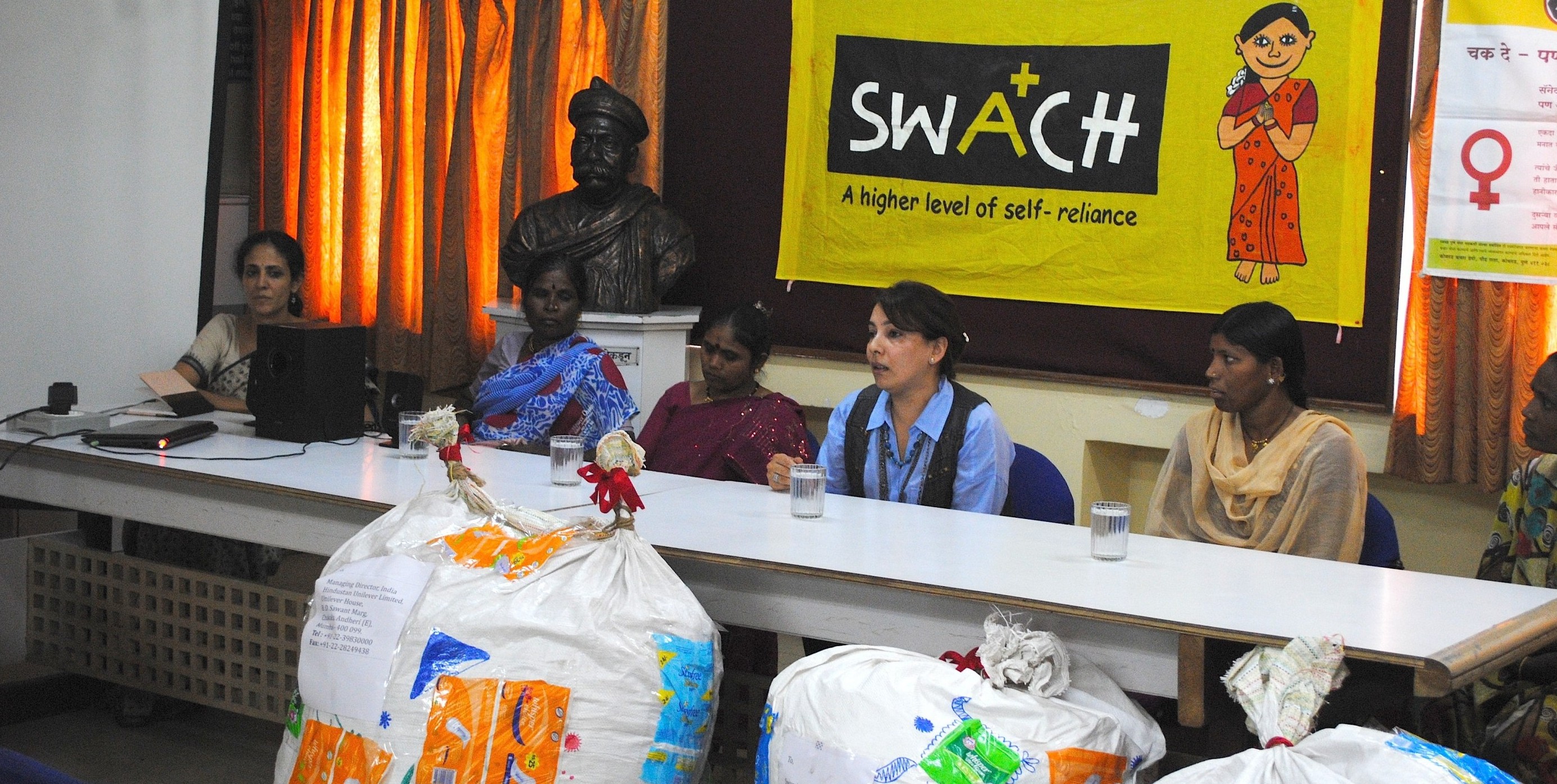
SWaCH’s “Send it Back” Campaign Fights for Proper Disposal of Used Sanitary Napkins to Protect Waste Pickers’ Health
SWaCH waste pickers’ cooperative began bringing attention to a little known but very important issue more than two years ago: the proper disposal of used sanitary napkins. After sending numerous requests to manufacturers of sanitary napkins and diapers and receiving no response, SWaCH came up with a last resort. The cooperative collected used sanitary napkins and sent them back in boxes to the companies’ corporate offices as a gift on International Women’s Day to make them experience firsthand what waste pickers undergo while handling such waste.

Declaration of the 1st Conference of Central American Waste Pickers “Juana Rafaela Juárez Téllez”
United in solidarity with our brothers and sisters of the waste picking profession – 160 delegates from the 17 member countries of RED LACRE and RED NICA along with four countries representing 40 supporters – we have had had the opportunity to assemble with the purpose of dialoguing, debating, and sharing:

